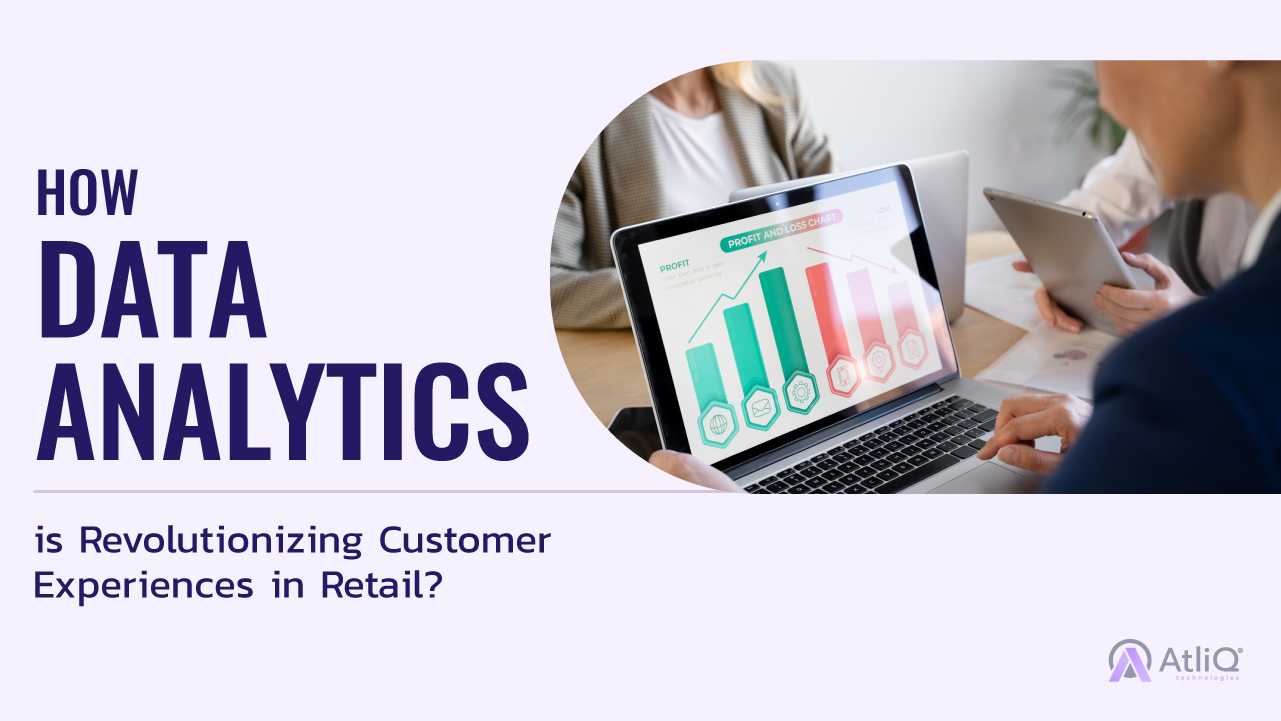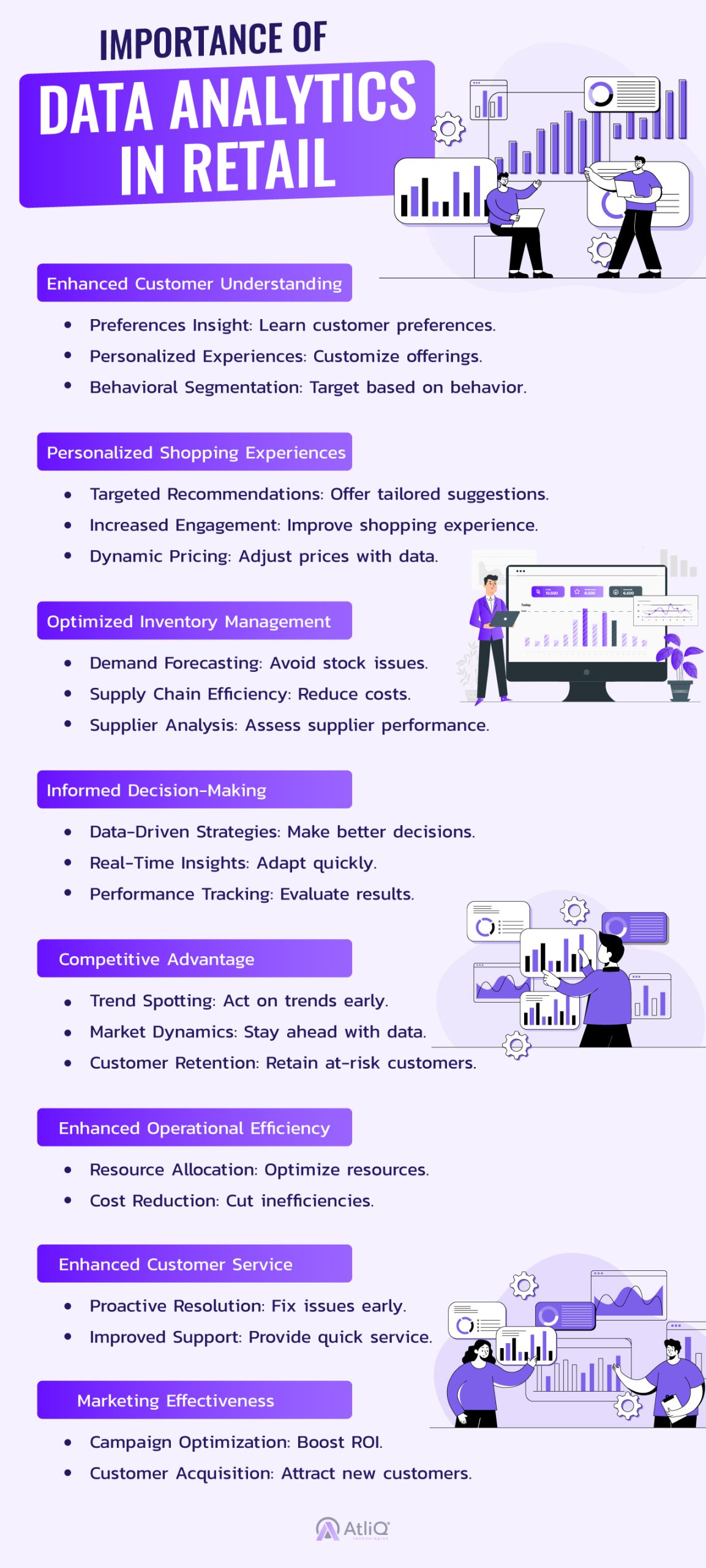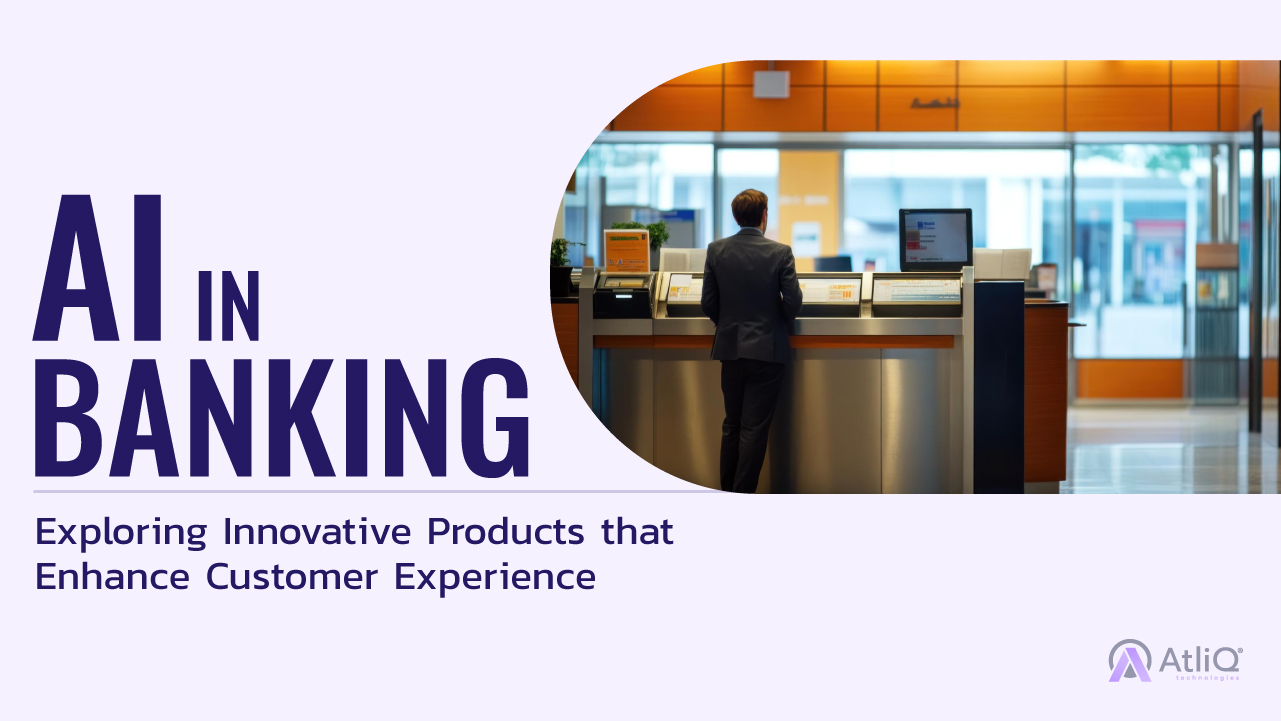
Imagine walking into your favorite store, and instead of being bombarded with generic offers, you’re greeted with personalized recommendations that feel almost like they were crafted just for you. This isn’t science fiction—it’s the power of data analytics in action.
In fact, 80% of retailers who harness the power of data analytics report a dramatic boost in customer satisfaction. Data analytics is not just a buzzword; it’s the secret weapon reshaping the retail world. It’s transforming how retailers understand and engage with their customers, turning ordinary shopping experiences into tailored, unforgettable journeys. Join us as we dive into the world of data analytics and uncover how it’s driving a retail revolution, one insightful data point at a time.
Definition of Data Analytics
Data analytics refers to the process of collecting, processing, and analyzing vast amounts of data to uncover valuable insights and patterns. It involves several key components:
- Data Collection: Gathering raw data from various sources such as sales transactions, customer interactions, and online behaviors. This data can come from point-of-sale systems, social media, customer feedback, and more.
- Data Analysis: Applying statistical and computational techniques to interpret the collected data. This step involves identifying trends, correlations, and anomalies that can provide actionable insights.
- Data Visualization: Presenting the analyzed data in graphical formats like charts, graphs, and dashboards. Visualization helps in making complex data more understandable and accessible, enabling quick decision-making.
Enhancing Customer Personalization
Personalized Recommendations: Data analytics enables retailers to create highly personalized product recommendations by analyzing customer behavior, preferences, and purchase history. By leveraging data from past interactions, retailers can predict what customers are likely to buy next, offering tailored suggestions that feel relevant and unique to each shopper. This level of personalization not only enhances the shopping experience but also increases customer satisfaction and loyalty.
Targeted Marketing Campaigns: With data analytics, retailers can design more effective and precise marketing campaigns by segmenting customers based on their interests, demographics, and buying patterns. This allows for the creation of targeted ads, promotions, and email campaigns that resonate with specific customer groups. By focusing on the right audience, retailers can improve engagement, boost conversions, and maximize marketing ROI.
Optimizing Inventory and Supply Chain Management
Demand Forecasting: Data analytics significantly enhances demand forecasting by analyzing historical sales data, market trends, and customer behavior. This allows retailers to accurately predict product demand and maintain optimal inventory levels, ensuring they have the right products available at the right time. By minimizing overstock and stockouts, retailers can reduce waste and improve customer satisfaction.
Supply Chain Efficiency: Analytics also plays a key role in streamlining supply chain operations. By identifying inefficiencies and bottlenecks, retailers can optimize processes such as order fulfillment, delivery schedules, and supplier performance. This data-driven approach reduces operational costs, improves delivery times, and ensures a smoother, more efficient supply chain.
Improving Customer Service and Engagement
Real-Time Customer Insights: Real-time data provides retailers with immediate insights into customer behavior and issues, allowing them to respond quickly and effectively. By tracking interactions and monitoring shopping patterns, retailers can address customer concerns on the spot, ensuring a smoother experience and boosting service quality. This proactive approach helps build trust and increases customer satisfaction.
Customer Feedback Analysis: Data analytics allows retailers to analyze customer feedback and reviews, providing valuable insights into what’s working and what needs improvement. By identifying common concerns and preferences, retailers can make informed decisions to enhance products and services, ultimately leading to better customer experiences and stronger brand loyalty.
Case Studies and Successful Implementations
Retail giants like Amazon and Walmart have successfully harnessed data analytics to revolutionize customer experiences. Amazon uses data to provide personalized product recommendations and optimize its supply chain, ensuring fast, accurate deliveries. Walmart leverages data analytics for demand forecasting, inventory management, and personalized marketing, helping them stay ahead in the competitive retail market.
These implementations have had a profound impact on customer satisfaction and loyalty. Personalized recommendations from Amazon enhance the shopping experience, increasing engagement and repeat purchases. Walmart’s data-driven approach ensures product availability and tailored marketing, improving customer convenience and fostering brand loyalty. These successes showcase the transformative power of data analytics in retail.
Future Trends and Innovations
Emerging Technologies: The future of data analytics in retail is being shaped by technologies like artificial intelligence (AI) and machine learning (ML). These innovations are enabling retailers to analyze massive amounts of data more efficiently, uncover deeper insights, and automate decision-making processes. AI-powered chatbots, predictive analytics, and real-time personalization are just a few examples of how these technologies are revolutionizing customer interactions.
Anticipated Changes: As AI and ML become more integrated into retail, we can expect highly personalized shopping experiences, predictive inventory management, and even smarter marketing strategies. Retailers will be able to anticipate customer needs, offer tailored solutions, and create seamless, engaging experiences that build stronger connections and drive long-term loyalty. The future of retail will be more data-driven, responsive, and customer-centric than ever before.
Data analytics is at the heart of the retail revolution, driving significant transformations in how businesses interact with their customers. From personalized recommendations to optimized inventory management and enhanced customer service, the insights gained from data allow retailers to create more seamless, engaging, and efficient shopping experiences. As emerging technologies like AI and machine learning continue to evolve, the impact of data analytics will only deepen, setting new standards for customer satisfaction and loyalty. Retailers who embrace these innovations will not only stay competitive but thrive in an increasingly data-driven marketplace.
Shape the Future of Retail with Smarter Insights!!



